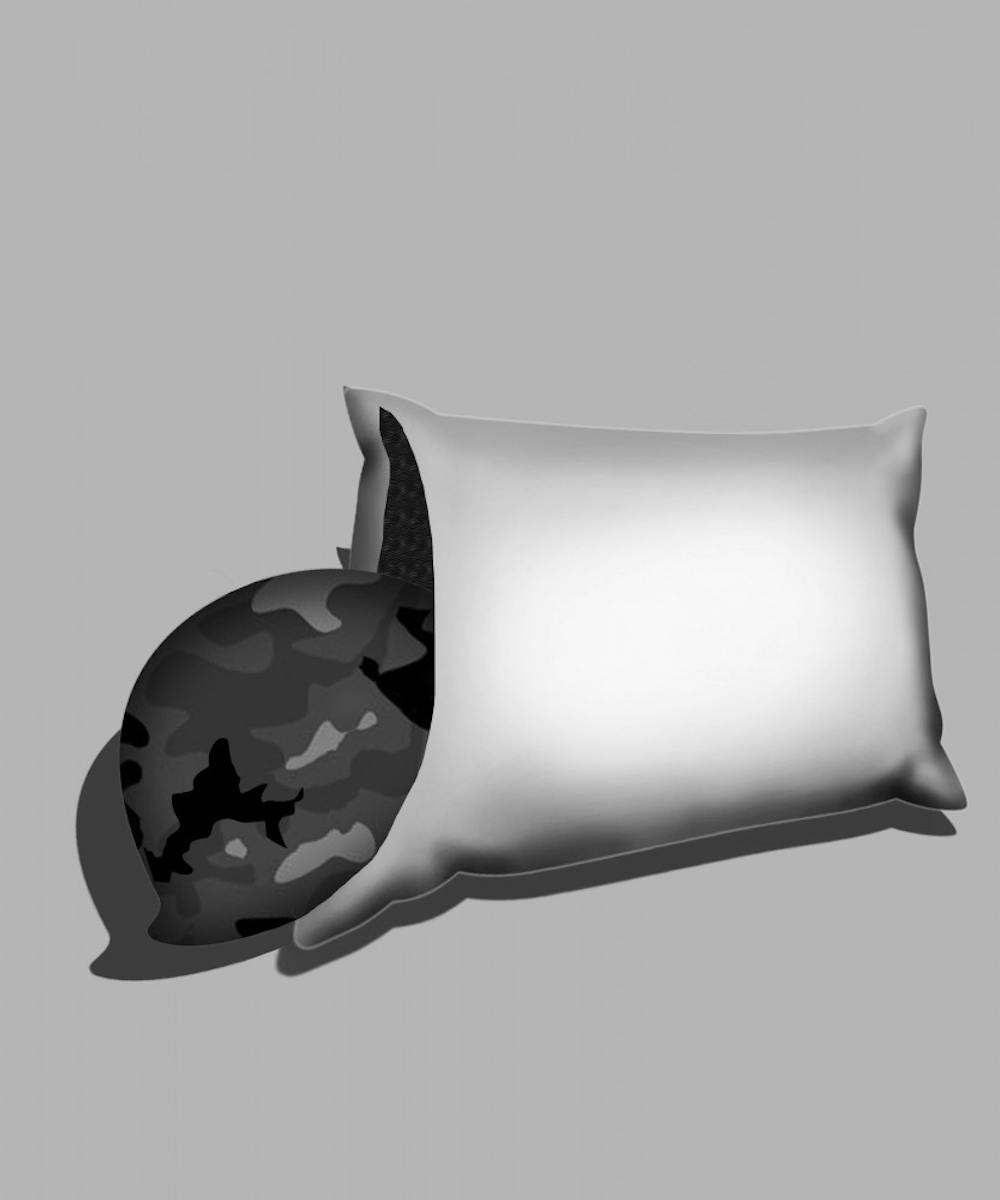A violent pillow fight that ended in a broken leg, several dislocated shoulders and concussions is not a bonding exercise — it’s an exercise in building resentment and hyper-masculinity.
West Point, the publicly funded United States Military Academy, has a century-old tradition of having a pillow fight for freshman cadets after a grueling seven weeks of basic training.
However, in order to participate in this pillow fight, you need a helmet.
The annual freshman tradition turned hyper-violent this year, leaving a whopping 30 cadets seriously injured, with 24 concussions among them.
Apparently, the injuries were due to pillowcases full of hard objects and the desire of the cadets to prove their worth during the brawl.
We may not be cadets at West Point but we really don’t understand how a pillow fight meant to bond freshmen was allowed to get so violent and hazardous, especially at a publicly funded academy meant to train our future military leaders.
According to www.hazingprevention.org, hazing is about power and control rather than an experience to build unity.
And what better way to control a class of cadets than making a “tradition” not only something you’ll never forget, but a reason to wind up in the ER?
In a New York Times article about the fight, a cadet said, “At the first body count, people were joking about it ... My friends were really excited. And right after, when we learned how many people had gotten hurt, everyone felt totally hard-core.”
The fact many cadets who participated in the pillow fight feel excited about inflicting so many serious injuries is worrisome.
We’re pretty sure the injured cadets do not feel as elated or as “hard-core” as the non-injured cadets, which makes us believe the pillow fight may breed resentment.
The cadets who were injured probably aren’t perceived as tough by the cadets who were not injured, and we feel the experience can undo any type of bonding that may have happened during the pillow fight.
It could cause cadets to feel like they must prove their strength and toughness once they are back to health.
This obviously wouldn’t contribute to the intended unification and would just act as another stake driven between cadets.
Another concern we have is how a publicly funded academy is allowed to conduct exercises where students are seriously injured without incurring any type of backlash.
If this exercise had gone down at IU, we are sure there would be some type of investigation into the exercise and its validity as a ‘bonding experience,’ or, in other terms, a hazing exercise.
While this pillow fight is a long-standing West Point tradition meant to bond freshman cadets and build their spirits, there is simply no reason for the cadets to be so violent with each other.
The Editorial Board believes that the sacrifices of men and women of the military are honorable and we are gracious for their service.
However, we feel concerned to know that future members of the military participate in such destructive and violent customs.
How are soldiers to react to enemy captives and people of sovereign nations if they’re practicing unnecessary violence during basic training?
Should we not feel threatened that these cadets are so quick to turn on one another for the sake of ‘burning off steam?’
Questions like “Would I feel comfortable participating in this activity if my parents were watching?” and “Is this causing emotional or physical stress or stress to myself or to other?” posed on www.hazingprevention.org give insight to the situation.
We assume both answers to these questions are no, which just validates our point about this being a hazing incident even further.
There is no need for a helmet or other types of body armor in a bonding exercise.
If there is a need for bodily protection, then the exercise has turned into a hazing event.
Bonding experiences shouldn’t come at the price of bodily injuries.
We think the West Point pillow fight advocates violence, hyper-masculinity and the hazing of fellow cadets.
Cadets shouldn’t have to prove their strength or dedication to the group by swinging pillowcases full of objects meant to do harm.



